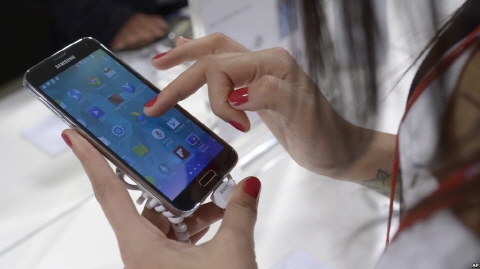
   |
[Headlines] (HL-예술/취미/종교) For Love's Sake...Hang Up the Phone!
최고관리자 | 17-02-17 00:43

Forget the chocolates, flowers and jewelry. This Valentine’s Day, February 14, perhaps the best gift you can give the love of your life is your undivided attention. Sadly, for many of us, that is easier said than done. An international study of more than 13,000 adults found that many people say modern technology has affected relations with their partner. Almost 40 percent of those questioned said their partner paid more attention to their mobile device than to them. Intel Security Group, a private company, paid for the study. It examined how romantic relationships are affected by a person's use of social media and the Internet. The research included both old and new relationships. Thirty-three percent of those asked reported that they had to compete against a mobile device for attention on a first date. Apparently, we have as much love for our digital devices as for the people we love. Intel’s survey found that adults spend almost equal amounts of time online at home as they do interacting directly. And a lot of married couples, friends and family members argue about time spent on mobile devices.
* perhaps = 아마, 어쩌면/ undivided attention = 전념[전심]/ easier said than done = 행동보다 말이 쉽다/ affect = 영향을 미치다/ compete against ~ = ~와 겨루다[경쟁하다]/ argue about ~ = ~에 대해 언쟁을 벌이다
Gary Davis is the chief consumer security officer at Intel Security. He says recognition of our electronic device involvement is important. “If you have a pattern where you’re at dinner, you’re out on a date, you're home having a quiet evening, maybe watching a show, or just enjoying a fire…and a device comes into play, it’s that awkward thing that I don’t think enough people think about. And when they don’t think about it, they don’t understand the wear and tear it’s causing on the relationship.” Edward Spector holds a similar opinion. “We’re not thoughtfully progressing in terms of how we’re using technology. We are often just sort of winging it.” Spector works as a psychologist in Bethesda, Maryland. He studies human behavior, and specializes in technology dependence. "So, we have to be thoughtful about the consequences of connecting to a particular social network, or allowing yourself to have the habit of the last hour and a half of your evening be checking your Facebook, or always responding to a text immediately." Rules or time limits on a device might be good, in theory. However, Intel’s survey found that 45 percent of those questioned do not set rules. Another 45 percent said they got into arguments about how much they are on their phones when spending time with loved ones. The lack of social rules about digital behavior might be the result of the newness of the issue.
* security officer = 보안 담당자/ recognition = (존재・사실・공식성의) 인정[승인]인식/ come into play = 작동[활동]하기 시작하다/ wear and tear = (보통으로 이용한 결과인) 손상, 손모, 소모, 질(가치)의 저하/ hold an opinion = 의견을 지니다/ thoughtfully = 생각이 깊게; 생각에 잠겨; 인정 있게, 친절히/ in terms of ~ = ~ 면에서는[~에 관해서는]/ sort of = 어느 정도[다소]/ wing it = 즉흥적으로 하다/ specialize in ~ = ~를 전문으로 하다/ consequence = (발생한 일의) 결과/ in theory = 이론상[원칙적]으로는/ set rules = 규칙을 세우다/ get into an argument = 논쟁에 들어가다[논쟁을 하다]/ result of ~ = ~의 원인에 의해 생긴 결과/ newness = 새로움, 최근에 생김; 갓 나옴, 신선함; 신기함, 생소함
   |




